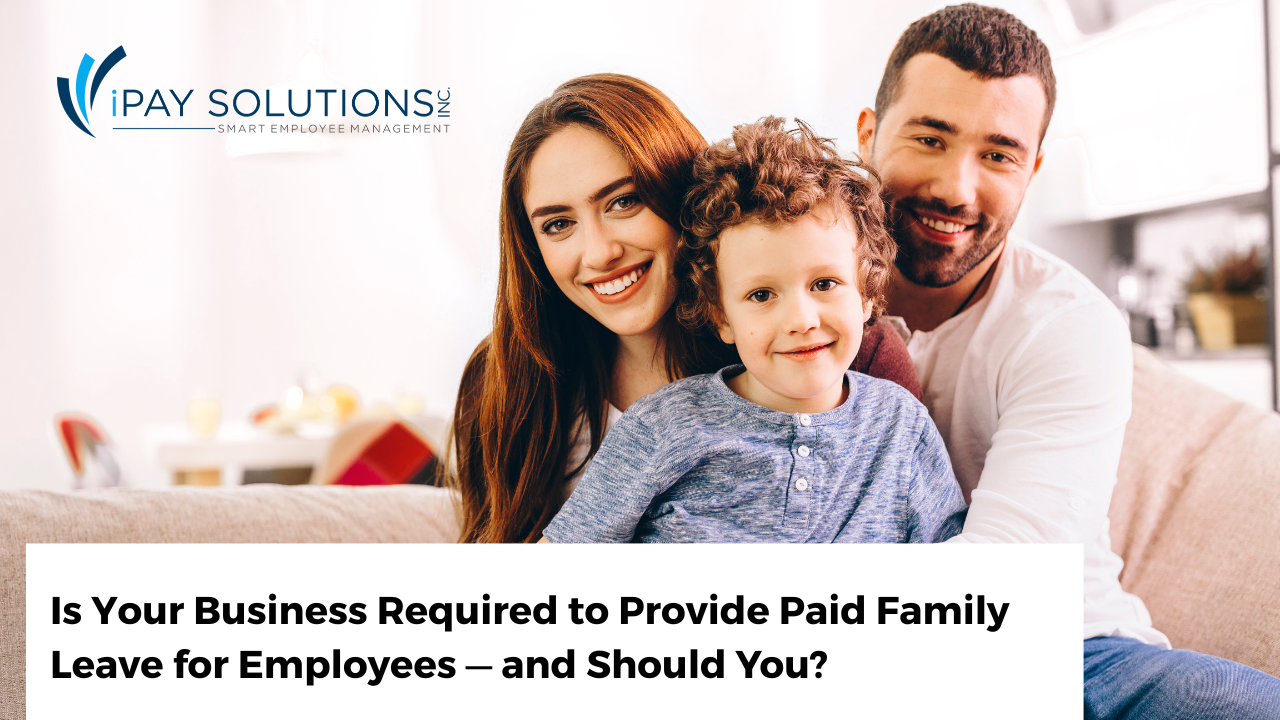Is Your Business Required to Provide Paid Family Leave for Employees — and Should You?
Paid family leave is a financial benefit available to employees in the United States. The Family and Medical Leave Act (FMLA) requires all public agencies and companies with 50 or more employees to provide up to 12 weeks of unpaid leave for eligible employees. However, if you are not required to provide paid family leave — should you?
Providing paid family leave policies can help your company attract top talent, reduce turnover and training costs, improve employee wellness and morale—and ultimately make your business more profitable.
Here are a few more reasons why providing paid family leave policies can benefit your small business.
Paid family leave makes you appear more competitive.
The more appealing you appear to your employees, the more likely they are to stay with you. The same goes for potential hires who are weighing different job offers and customers who might be looking for a new vendor.
Paid family leave can provide an edge in this regard. A study by Gallup found that employees ranked an increase in benefits at the top of their list of considerations when choosing a new employer over their current one, with regard to personal wellbeing being an important factor. And it’s not just about financial compensation: people care about flexibility as well—specifically, having access to flexible scheduling so they can balance life responsibilities with work commitments
It helps recruit and retain high-quality employees.
Employees who receive paid family leave are more likely to stay at their jobs. According to a study by the Center for American Progress, employees who take paid family leave are more likely to be more satisfied with their job than those who don’t have access to it, and providing paid family leave for employees increases productivity and performance. Employees are also less likely to quit or look for another job after taking time off.
It helps prevent parent burnout and job loss
If a new mom doesn’t have paid leave and doesn’t have access to other benefits like childcare, she’s more likely to quit her job. That’s because when you’re a parent, balancing work and life is hard enough on its own. For many people, paid family leave helps them feel like they can do both successfully—and keep their jobs.
And if you’re an employer who provides these benefits? You’ll find that employees are more loyal—and more likely to stay with your company longer than they would otherwise be able to do so.
Paid family leave can be cost-effective for both employers and employees.
Offering paid family leave leads to increased employee morale and productivity, which in turn results in lower turnover rates. This means that your business will be able to retain its most valuable employees for longer periods of time due to these benefits. In addition, offering paid benefits can also save you money in terms of recruitment costs by increasing the number of qualified candidates who apply for positions at your company or offer their services as independent contractors.
Also, if your company is not required to offer paid family leave, you can adjust your unpaid leave to include a paid period.
Conclusion
Ultimately, the argument for paid family leave is a simple one. It’s good for employers and it’s good for employees. Paid family leave helps your company appear more competitive by showing that you care about your employees and their families. This can attract high-quality candidates who may be looking for an employer that offers benefits like this one. It also helps employees retain their jobs by reducing turnover rates, which saves companies money on training costs as well as recruiting expenses.
And finally, providing paid time off allows employees to spend time with their families without worrying about losing income or missing out on promotions due to burnout—which means they won’t quit before they even start working at your company!


